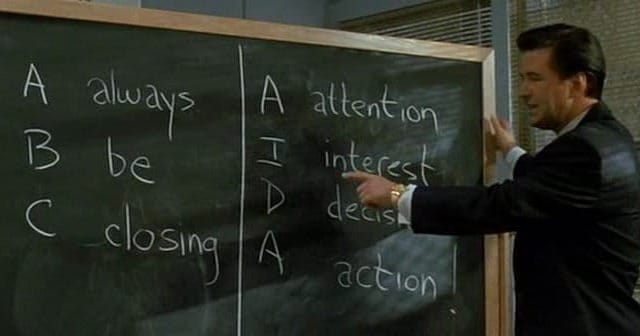Founder-Led Sales for Introverts
I pictured the sales floor of a previous workplace, packed with cubicles, each inhabited by a smooth-talking, cold-calling salesperson. Prolonged calls and meetings wear me down. My aversion stemmed from a skewed perception of what sales entailed.

I landed a cold-calling sales gig during my freshman year of college where I was responsible for calling 20-30 alumni each evening in a call center full of other college students. I faced constant rejection, and it wore me down pretty quickly. I left after just two weeks. In the years that followed, I stayed far away from direct sales. I don't think I intentionally avoided it so much as I just ruled it out as something I was capable of. It seemed like one of those talents where you were either born with a personality for sales or you weren't.
When we started Churnkey, if you'd asked me which part of the business I wanted to work on, sales would have been last on the list. Building the product, coding, operations, legal work, even tech support – all these were more appealing than cold outreach and endless sales demos. Sending an occasional targeted email or joining a demo was fine, but owning the sales process? No way.
I pictured the third floor of my last corporate job, packed with cubicles, each inhabited by a smooth-talking, cold-calling salesperson. That's just not me. As an introvert, prolonged calls and meetings tend to wear me down. My aversion partly stemmed from a skewed perception of what sales entailed.
For the first year of Churnkey, I spent most of my time in areas where I felt comfortable – developing the product, setting team goals, and so on. But there came a point where the need for a dedicated salesperson became evident. This was B2B SaaS, after all, and no amount of growth marketing or lead magnets could replace the impact of targeted cold outreach and setting up numerous demos.
Despite understanding this need, I had zero interest in diving headfirst into founder-led sales. “Let's hire a pro,” I thought, somewhat naively, dismissing the advice I had received about engaging in founder-led sales for at least a year. If the situation were reversed, and I needed help with product development, hiring an experienced software engineer would be a no-brainer. Why not apply the same logic to sales?
This approach seemed logical until it didn't. We hired a talented salesperson, equipped him with all the necessary tools, and he began booking meetings and demos within a month. However, after 8-9 months, it became clear that this strategy wasn't working. The growth was insufficient, and the costs weren’t justifying themselves. The painful decision to part ways was a tough lesson and, in retrospect, one that could have been avoided.
In September, with the launch of our Failed Payment Recovery product, I shifted my focus to sales. It felt like the only viable option to push the company forward. We had a fantastic product, saving companies millions, but it needed customers.
The thought of facing rejection, something I had long avoided, was daunting. But reflection made me realize I was already in pain: the guilt of not drawing a salary for two years, the strain on my family life, and the recent tough decision regarding our salesperson. It was a tipping point, a moment of “F it, something needs to change.”
I approached sales with a new intensity, akin to handling a critical application outage in my earlier coding days. I worked tirelessly on the existing pipeline, conducting demos, in-person meetings, and reaching out through cold emails and social media. In just a few months, I went from dreading sales to conducting numerous successful demos, achieving a 50% close rate, and helping the team meet our year-end revenue goals.
January saw this momentum continue, with a record number of demos and our biggest enterprise deal to date. By April, I had conducted over 100 sales calls, tailoring each pitch to the customer’s specific needs and pain points, a skill honed through practice and dedication.
This journey led me to understand the real value of founder-led sales. No one else could learn about our ideal customer profile (ICP), understand the pain points, and translate these insights into engineering priorities and strategy as efficiently as I could.
Another realization was the unmatched passion a founder has for their product. Every time I discussed Churnkey on a sales call, my genuine enthusiasm was evident. This isn't about mastering sales techniques; it's about belief in your product and its ability to make a difference.
So, what changed? Beyond the commitment to learning, I had an epiphany. Sales isn’t about possessing a gift for gab or tricking customers. It's about passion and in-depth knowledge of your product. No hired salesperson could match my conviction in Churnkey's transformative potential for subscription companies.
For fellow introverted founders, my experience underscores the importance of embracing your role in sales. It may not come naturally, but with commitment and a shift in perspective, it can become a powerful tool in your entrepreneurial arsenal.
